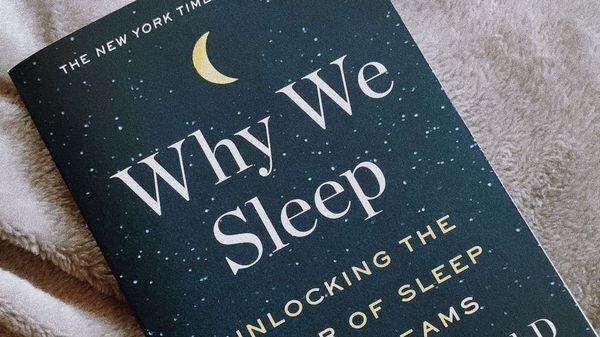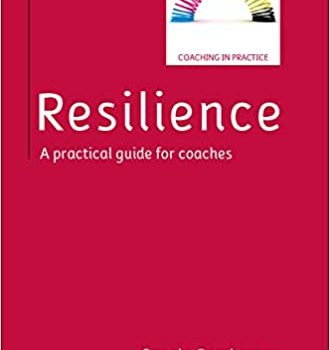
The 12 Days of Books #9 – Why We Sleep
- Posted by Liz Gooster
- 0 Comments
- Matthew Walker, sleep, The 12 Days of Books, Wellbeing, Why We Sleep
‘Sleep is the single most effective thing we can do to reset our brain and body health each day.’
Matthew Walker’s Why We Sleep was published in January 2018. It made quite a splash. I remember seeing it piled high in the window of Waterstones. I was intrigued, but I knew I couldn’t read it then. My daughter was less than 6 months old at the time and I was barely sleeping at all. This book, I knew, would tell me how much we need sleep, how beneficial it is for our minds and bodies, how damaging it can be when we don’t get enough of it. Having since read it, I know it does indeed tell us this, and the picture it paints is even more dramatic and sobering than I thought!
Sleep affects everything
Walker is a former professor of psychiatry and currently a professor of neuroscience and psychology. According to his extensive research, chronic sleep deficit can weaken our immune system, predispose us to Alzheimer’s disease and increase our risk of heart disease, diabetes and psychiatric disorders. It can even make us gain weight. Lack of sleep raises the levels of a hormone that makes us feel hungry and in a cruel pincer movement, simultaneously suppresses one that tells us we’re full. Add to this the precipitous decline in concentration, productivity and performance we experience when we’ve underslept and we can begin to appreciate that sleep shortage is a recipe for disaster in every arena. As Walker puts it:
‘Human beings are … the only species that will deliberately deprive themselves of sleep without legitimate gain. Every component of wellness, and countless seams of societal fabric, are being eroded by our costly state of sleep neglect: human and financial alike. So much so that the World Health Organization has now declared a sleep loss epidemic throughout industrialized nations.’
Scientific advances in recent decades have begun to reveal some of the secrets about why we sleep. These findings have led Walker to make the bold claim that:
‘there does not seem to be one major organ within the body, or process within the brain, that isn’t optimally enhanced by sleep (and detrimentally impaired when we don’t get enough).’
The startling impacts of sleep shortage
The data Walker cites throughout the book are stark. For instance, after 16 hours of being awake, the human brain begins to fail. We need more than seven hours rest per night to maintain our cognitive performance. After ten days of just seven hours of sleep, our brain is as dysfunctional as if we hadn’t slept at all for 24 hours. And driving while tired is the shocking cause of more accidents than drugs and alcohol combined. Research shows that after being awake for 19 hours, people who are sleep-deprived are as cognitively impaired as if they were drunk. Why We Sleep is full of facts like this and the science behind them. I found it a startling and disturbing read. Previously, I knew sleep was important, but I had no idea of just how important, or of how quickly the impact of sleep deprivation kicks in.
How can we sleep more?
It isn’t all doom and gloom though. I found it uplifting to read about the benefits we give our bodies and minds when we do get enough shut-eye. And Walker gives us some encouraging ideas about how we can improve our snoozing. These include, of course, the usual ‘sleep hygiene’ tips we’ve all come across. Don’t drink caffeine in the afternoon; avoid alcohol; stick to a regular time for going to bed and getting up; keep your bedroom gadget-free. He also has some exciting ideas for the future, such as persona trackers working in tandem with home networks to regulate temperature and light for optimum sleep. And then there are special lightbulbs, currently used by NASA, to control the amount of harmful blue light, hospital care that harnesses the healing powers of sleep, education that teaches our children the importance of sleep.
A book for everyone – except new parents!
I still don’t get enough sleep – and every time I read the book again the potential consequences of this scare me. But it also makes me recommit to trying to get more sleep, because I want the benefits Walker’s work has convinced me it confers. So I heartily recommend Why We Sleep to anyone who’s interested in physical and mental health, longevity, productivity, clear thinking, creativity, and a sharp memory. If you’re a sleep-deprived new parent, however, please give it a wide berth!
Other posts in this series
- 12 Days of Books overview
- FT Guide to Business Coaching, 2e
- Why I’m no longer talking to white people about race
- Flourish
- Self-compassion
- Vital Conversations
- RESULTS
- The Colour Monster

I like to describe myself as happily ‘At Large’ in an independent portfolio career, balancing coaching, leadership development, coach training and being a mum to my young daughter. Positive psychology is a big influence on my work and I’ve recently gained an MSc in Applied Positive Psychology & Coaching Psychology from the University of East London. My interests include reading, writing, travel, yoga, Zumba, coffee and wine! Connect with me on LinkedIn and sign up for my newsletter, Positive Intentions.



0 Comments